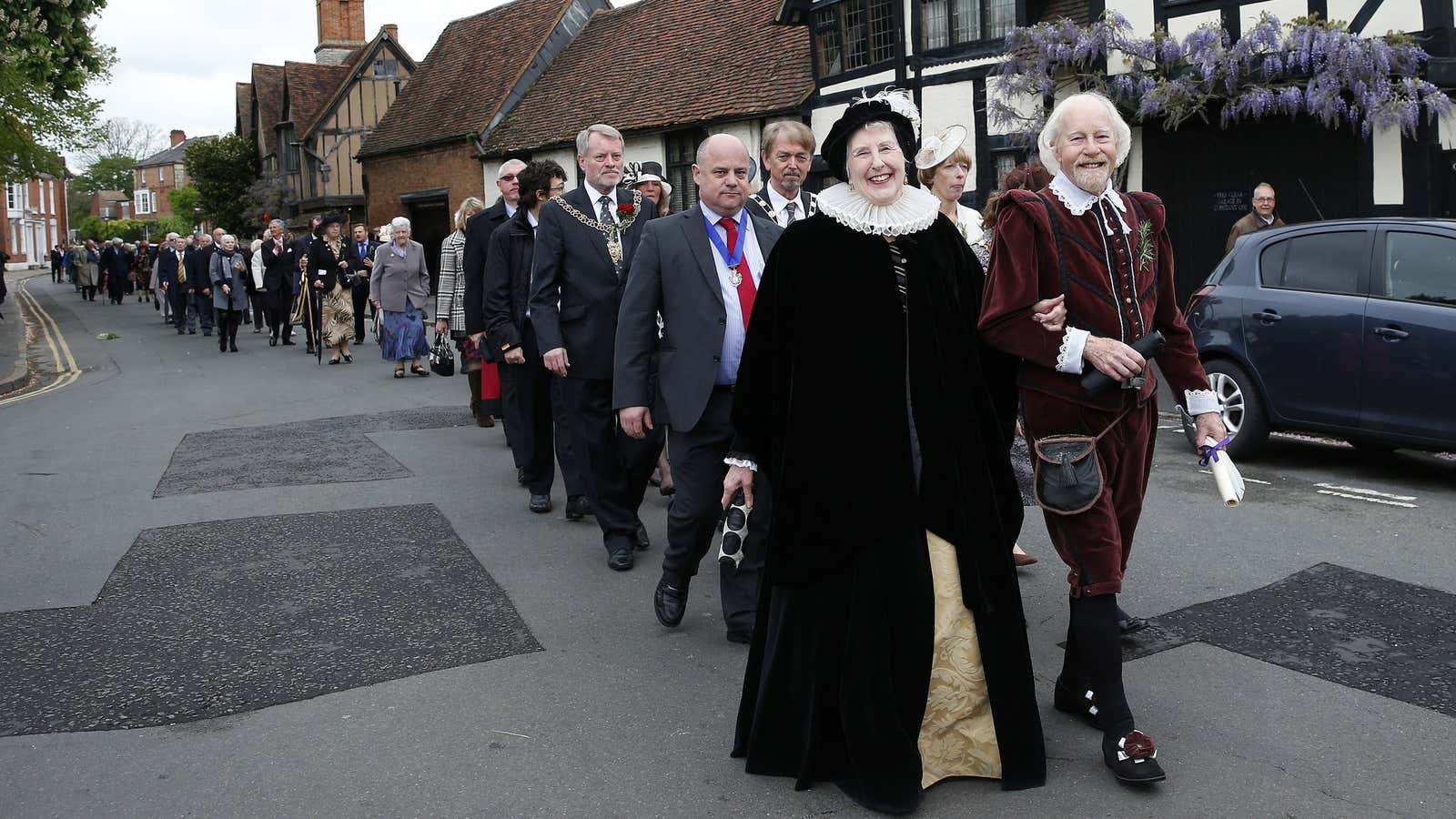The British government is spending £1.5 million ($2.44 million) to have all of Shakespeare’s works translated into Mandarin by the Royal Shakespeare company. UK culture secretary Sajid Javid said he hopes the move will build “stronger links with China.”
Promoting Shakespeare—better known in Chinese as Shashibiya or Sha Weng—in the mainland comes at a time when the UK is struggling to balance its need for Chinese investment with domestic and international calls to stand up to China over its treatment of Hong Kong, a one-time British colony. The English playwright whose popularity has eclipsed even that of traditional Chinese drama may be just the ticket—especially since his large body of work can be used to justify just about any political theory as needed.
Translations of Shakespeare’s works have circulated in China since the early 1900s, with interpretations morphing to fit the ideology of the time. One 20th century translator rendered the famous line, “To be or not to be, that is the question,” as “To live or to destroy, this is a question which merits thought.” After the People’s Republic’s founding in 1949 and throughout China’s Cultural Revolution of the 1970s, Shakespeare was upheld as a paragon of socialist thought. King Lear was a depiction of the crumbling foundations of a feudal society while Romeo and Juliet represented a desire to escape feudal codes of conduct.
Then in the 1980s, as China’s economy began opening up, works like The Merchant of Venice gained popularity with literary elites as well China’s working class who found the English plays easier to relate to than Chinese dramas based on outdated moral and social codes. Now appetites for Western-style spoken drama are still growing, with troupes performing versions of a Midsummer’s Night Dream to packed theater houses in Beijing.
But Shakespeare’s works, with their focus on conflict, corruption, and subversion, could just as easily remind readers of themes that China’s leaders would rather ignore—though the comparisons can cut both ways. After all, former president Jiang Zemin infamously described China’sviolent military crackdown in 1989 as “much ado about nothing” during an interview with Barbara Walters.
Shakespeare’s popularity and acceptance in China also doesn’t mean that authorities are becoming more open to literary ideas. Today, a writer known by the pen name Tie Lu was was detained after criticizing the country’s propaganda chief, and scores of other writers remained banned. Lu Xun, a Chinese modernist writer often compared to Shakespeare in terms of influence and stature, has slowly seen his works looking at the struggle between egalitarianism and authoritarianism, erased from official school curriculum.




